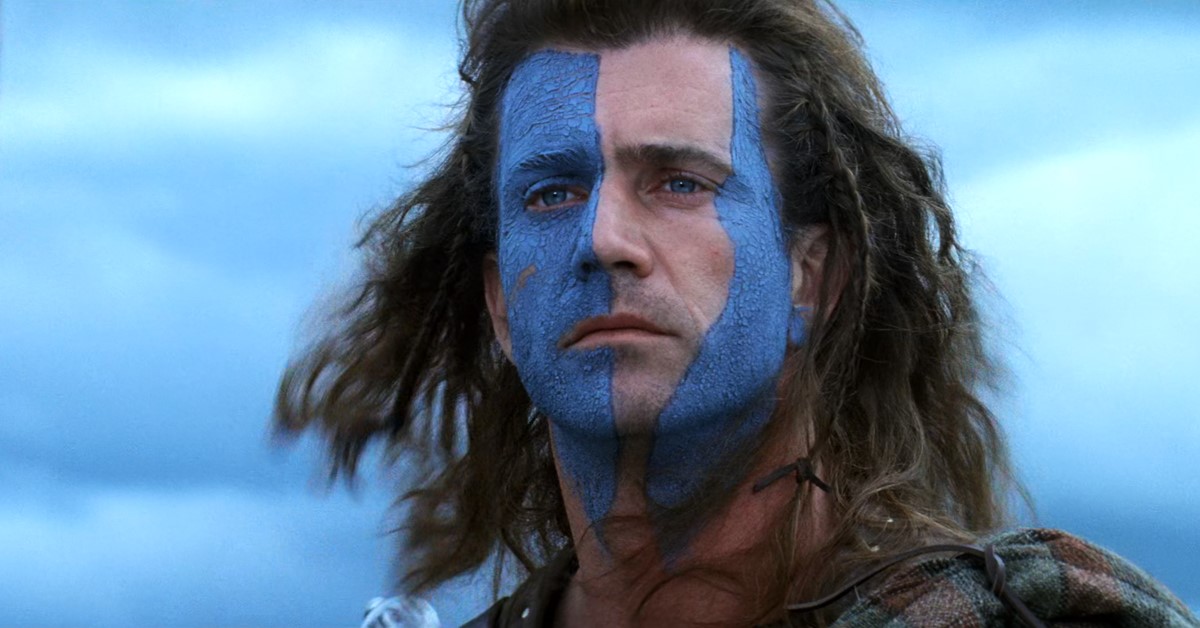Last updated on August 14th, 2024 at 12:10 pm
Braveheart, a 1995 epic historical war film directed by Mel Gibson, tells the captivating story of William Wallace, a Scottish warrior who fought against English oppression in the 13th century.
This article takes you on a journey through the remarkable life of Wallace, exploring his determination, love, bravery, and the timeless lessons we can learn from his struggle for freedom.
There is no other film that I would like to watch a hundred times and still don’t get bored than Braveheart 1995. watched 2008 for the first time, Braveheart remains my most watched and favourite film of all time. It ignited my love for Hollywood, introduced Mel Gibson and rekindled my desire to know Sir William Wallace. I fell in love with Scotland, its lush green nature, and Sir William’s morals and patriotism and grow disliking towards the British oppression and injustice to Scots.
The story begins with the birth of William Wallace, a legendary figure who would later become a symbol of Scottish resistance. As a young boy, Wallace witnesses the brutal oppression faced by his people under English rule. These early experiences ignite a fire within him, and he grows up with a strong sense of justice and a deep desire to protect his homeland.
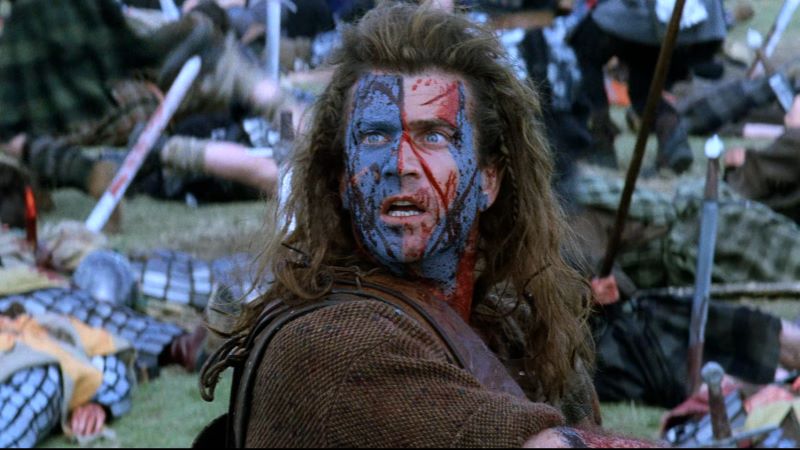
As Wallace reaches adulthood, tensions between Scotland and England continue to rise. The English authorities impose harsh laws and unjust treatment upon the Scottish people, further fueling Wallace’s determination to fight back. He became a prominent figure in the resistance movement, rallying his fellow Scots to join him in the battle for independence.
The pivotal moment comes when Wallace leads his countrymen to victory in the Battle of Stirling Bridge. With his strategic brilliance and unwavering spirit, he inspires his troops to overcome the formidable English forces and emerge triumphant. This resounding victory boosts the morale of the Scottish people and solidifies Wallace’s position as a revered leader.
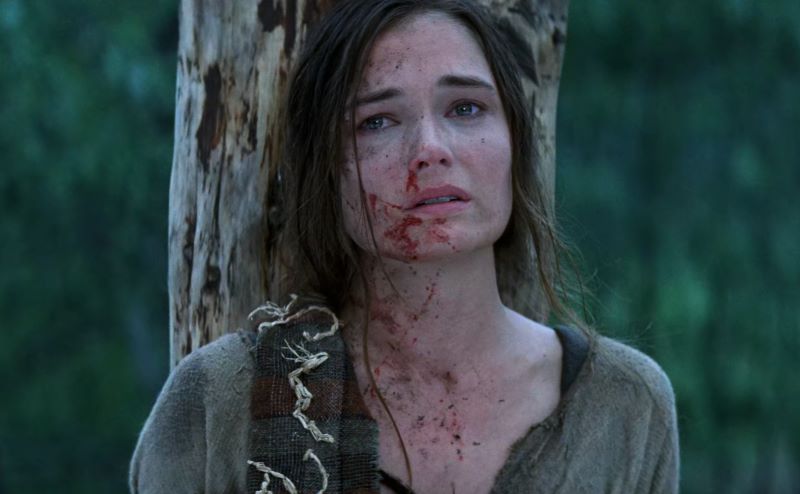
However, the fight for freedom is far from over. The English King, Edward I, responded to the Scottish uprising by assembling a massive army to crush the rebellion. In the subsequent Battle of Falkirk, Wallace and his forces faced the full might of the English army. Despite their bravery and resilience, they suffer a devastating defeat, and Wallace is forced to go into hiding.
Historically, with his homeland in turmoil, Wallace seeks refuge in France, where he continues to garner support for the Scottish cause. Eventually, he returns to Scotland, hoping to rekindle the flames of resistance. However, his whereabouts are betrayed, and he is captured by the Scottish knight Sir John de Menteith.
101 best
Directed by Mel Gibson, starring Mel Gibson as Sir William Wallace, Sophie Marceau as Princess of Wales Isabella, Patrick McGoohan as Edward Longshanks and Catherine McCormack as Murron MacClannough, Braveheart 1995 is one the 101 best educative films on my list. New York Times praised Braveheart calling it “one of the most spectacular entertainments in years”.
Along with 5 Academy Awards, Braveheart became the ninth film to win Best Picture with no acting nominations with a box office hit worth $210,409,945 making it the ninth highest-grossing film of 1995 and receiving 32 awards. It is one of the 100 best thrill films of the American Film Institute.
Life of Sir William Wallace
The Scottish national hero Wallace, Sir William was born in 1270 near Paisley, Renfrew, Scotland and was one of the great Scottish leaders of Scottish resistance to free Scotland from English oppression. His father, Malcolm Wallace, was a farmer in Renfrew. Edward I or Edward Longshanks invaded in 1296 Scotland and ousted its king John de Balliol and claimed his rule over Scotland.
After the incineration of Lanark in May 1297, William formed an army with the commoners and small owners to press resistance against the English occupation and attacked the English garrison in Rivers Forth and Tay. After the victory at Stirling in September 1297, William led the resistance to northern England and destroyed the counties of Northumberland and Cumberland in October 1297.
We all end up dead. It’s just a question of how and why.
Wallace to Robert the Bruce. Braveheart quote.
Known as Blind Harry, the Scottish poet Henry Minstrel’s 15th-century biographical poem is the sole source of information regarding the life of Sir William Wallace. As per the poem Wallace was outlawed by the English owing to a disagreement erupted due to the death of an Englishman.
The dispute resulted in the burning of an English garrison and an attack on an English magistrate led by William Wallace. He along with other Scottish nobles partook in rebellion against England in 1297.
William was awarded with Knighthood by Scottish nobles upon his arrival in Scotland in December 1297, though many nobles held grudges against him. Longshanks invaded Scotland again after returning from his ally country, France in July 1298. In the same year, on July 22 Edward Longshanks routed the English in the battle of Falkirk and Wallace was forced to into hiding.
He was captured on his return from France after some time near Glasgow on 5th August 1305 by a Scottish knight Sir John de Menteith. He was condemned as a traitor, even though he never showed any allegiance to King Longshanks. He was hanged, disembowelled, beheaded, and quartered. In 1306 Bruce raised the rebellion in 1306 that eventually brought independence for Scotland.
Braveheart 1995 Plot
The Ruthless English Ruler Edward “Longshanks” attacked and defeated Scotland in 1280 following the demise of the Scots lord Alexander III, who had no heir. At his young age, William Wallace came across the killing of a couple of Scottish nobles by Longshanks along with his farmer father and older brother John battling against the English. After their death, his uncle Argyle sent him to Europe for higher education.
By the time Wallace returned to his village after education, Longshanks gives his nobles land in Scotland and Scottish noble in England as well as the freedoms of prima nocte or ius primae noctis, the first night for the nobles when any common girl gets married, the right for the nobles to have sex. In a wedding ceremony, Wallace witnessed the English soldiers to claim their right of prima nocte where he met his childhood sweetheart Murron MacClannough and fell in love.
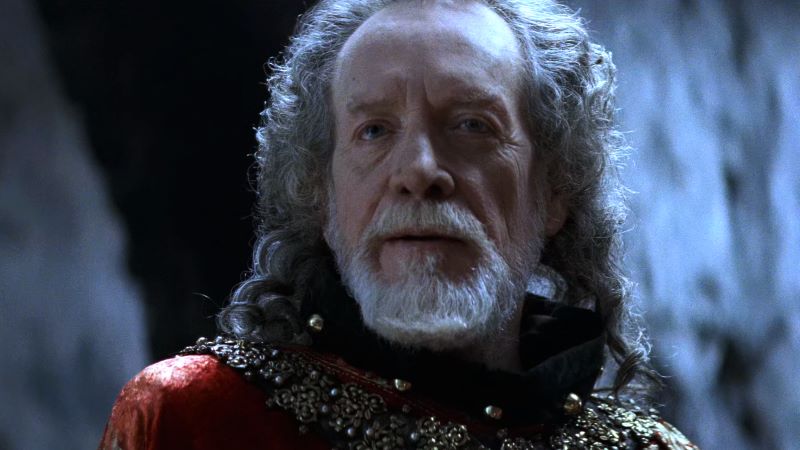
Wallace and Murron got married secretly to avoid prima nocte. But she was being followed by the English soldiers and Wallace rescued her and was executed publicly. In retaliation, Wallace gathered his tribesmen and attacked the English garrison and executed the magistrate at the same place where he executed Murron to take control of the town. Wallace sent the living soldiers to Longshanks with the message of rebellion from Lanark.
Every man dies. Not every man really lives.
~Wallace to Isabella. Braveheart quote
Longshanks had his Prince Edward marry Princess Isabella of France, England’s ally. During his visit to France to maintain England’s alliance with France, Longshanks ordered his son to stop Wallace and quell the rebellion by any means.
But while he was away, Wallace and along with his childhood friend Hamish battled against the English in Stirling where Wallace killed the English commander Cheltham. Wallace afterwards headed to Yolk where they killed Longshaks’ nephew whose severed head was sent to him upon his arrival from France.
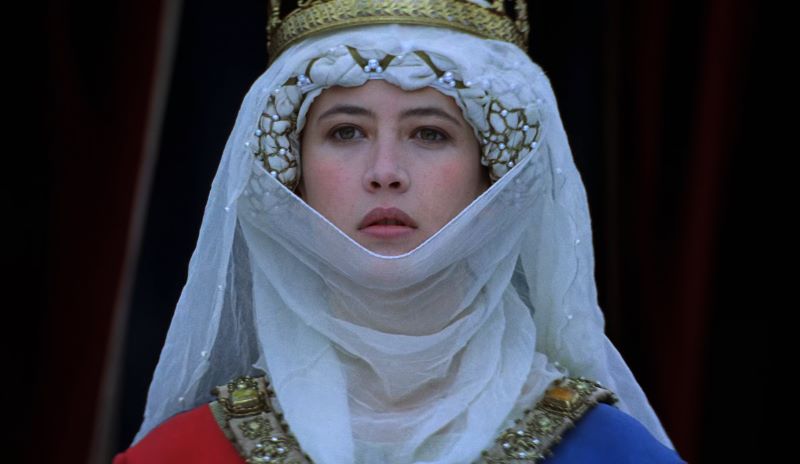
Before going to York Wallace sought Robert the Burce’s assistance in fighting English and in England. But Robert’s father, Robert the Elder the 6th Bruce, the leper, was hoping to gain him the crow of the king of Scotland by submitting to the English allegiance which some of the nobles had already approved of. Wallace became an enemy of the nobles and England.
Seeing the severed head of his nephew and hearing the annihilation of his army in York, Longshaks desired a truce and sent his daughter-in-law, Isabella, to Wallace to buy him off with gold and with an offer of lordship and to distract him of the dispatch of an army for another invasion in Scotland. However, Isabelle, who heard the story of Wallace’s love story and passion for Murron, fell in love with him. She warned of the eminent invasion.
Wallace implored the council to fight against the English army which many did not agree about. Mornay and Lochlan opposed the idea of fighting against the English army. Though Robert the Bruce agreed to unite the Scottish tribes he betrayed Wallace at the Falkirk battle. Tough Robert wanted to assist Wallace; his father advised him to choose the side of Longshanks.
Longshanks confronted Scots at the Falkirk battle where, bribed, the nobles like Mornay and Locklan withdrew forces from fighting. While charging the King who was retiring from the battlefield knowing the victory, Wallace was heartbroken to find out Robert on Longshanks’ side.
Though Wallace let him go alive, Wallace killed Mornay and Lochland afterwards. Haunted the conscience, Robert lamented the undue gory he took from Wallace for whom people fought, not for Robert. He felt betrayed by that which haunts him even though his father’s solace that, “all men betray and all lose heart. Instead of losing heart, he wanted to believe like Wallace which prompted him to say that he will never be on the wrong side again”.
Desperate, Longshanks dispatch assassins after Wallace. Isabella, with whom Wallace developed an affair, summoned him into a secluded hut to warn him of the possible assassination attempt carried out by Longshanks. He waged a guerilla war against the English with her help.
As Longshanks’ health worsened, he arranged a meeting with Sir William Wallace in Edinburgh. Regardless of Hamish’s warning, Wallace attended the meeting. But without Robert’s knowledge, his father secretly arranged Wallace’s arrest in order to secure his position as king of Scotland causing him to disown his father. Wallace was taken as a prisoner and awarded execution by the court trial. William refused to the king’s allegiance.
In the dead bed of Longshanks, unable to speak, she revealed that the foetus that is growing in her belly is not from his bloodline, which was his original plan, but of Wallace. She assured Longshanks that his legacy would be destroyed at his death and their son who is on his way into the world will replace his son, Price Edward.
Even when he was being disembowelled alive, he refused to declare his allegiance to the king of England, though the pitiful crowd cried mercy on Wallace’s behalf. The Judge offered him one last possibility by asking him to cry out ‘Mercy”. Sir William cried out “Freedom” instead of “mercy” while he was being beheaded in public. Longshanks died of hearing the cry of Wallace. While being executed, Wallace saw a vision of Murron in the crowd smiling at him.
Sir William Wallace’s body was torn into pieces after the beheading, his head was set on London Bridge and his arms and legs were sent to the four corners of Britain as a warning against treason. And Robert the Bruce, now the king of Scotland, rode out to pay homage to the English King with his army in 1314 on the Bannockburn field where was supposed to accept his crown.
But invoked by Wallace’s memory from the handkerchief he had been carrying from the Falkirk battlefield that belonged to Wallace from Murron, Robert urged the Scots to fight with him as they fought for Wallace.
Hamish tosses Wallace’s blade point-down before the English armed force, and he and the Scots serenade Wallace’s name as Robert leads them into a fight against the English, securing freedom for Scotland.
Lessons from Braveheart
Braveheart offers valuable lessons that transcend time. In this section, we reflect on the key takeaways from Wallace’s story, such as the importance of resilience, courage in the face of adversity, and the power of unity in fighting for a just cause.
Robert the Bruce who became king after Sir William Wallace’s execution narrates Braveheart 1995. He begins by saying “I shall tell you of William Wallace. Historians of England will say I am a liar. But stories are written by those who hanged the heroes.” Though Braveheart is not about teaching history, it takes us back to the 13th-century struggle of Scotland for freedom against England.
Stories are written by those who hanged the heroes.
Robert the Bruce, Braveheart 1995 quote
The film is loosely based on the life of William Wallace and the Scottish resistance with less historical accuracy. It primarily focuses on the rise of William basing his retaliation against the English for killing his wife, Murron. His hope of having a peaceful life was disrupted when the English soldiers killed her to get to him. However, there couple of things I would love to retrospect on, especially on some great lines.
First encountered in 2008, Braveheart remained as the best film to me because of the impression on left on me. The screenplay, music, the lush green and majestic landscape of Scotland, the cruelty of the rule on the ruled and the yearning the freedom all together tell us the necessity of sovereignty, a sovereign land. Ultimately, what is the point of having all things desired if there is no freedom to enjoy it freely?
It also reveals the human frailty and condition of the human heart. It was indeed very much frustrating to how people can easily disregard conscience and the ground of right things to do for temporal gain. We see that among Mornay and Lochlan, they deserted the notion of freedom and betrayed their countrymen to accept the allegiance of King Longshanks for temporal gains which they could not enjoy for a moment as death followed them to their bedchamber.
Death puts in my mind the remarks of Wallace. When Robert the Burce suggests to him that making enemies among nobles and of the king may end up his death, Wallace replies, “We all end up dead. It’s just a question of how and why.”
He said the same to Princess Isabella when she visited him in his captivity to implore him to accept the king’s allegiance and ask for mercy. He refused and replied, “Every man dies. Not every man really lives.” He refused to drink the numbing liquid that she brought because he thought it would numb his wits, too.
An oath to a liar is not an oath at all.
Graig to Wallace. Braveheart quote
Most of all, the representation of fighting with conscience by Robert the Bruce was marvellous. In every bad individual, there exists a human factor visible only when reason outweighs necessity. Wallace’s paternal uncle Argyl’s response was, “I know you can fight but it’s our wits that make us men”, when he proposed to him that he could fight at his young age.
I can not forget the moments when little Murron offered Wallace during his father and brother’s funeral, the moment William saw the cart carrying the dead body, when Murron was killed, every act of Patric McGoohan as Edward Longshanks, and of Mel Gibson as Sir William Wallace. Love-deprived Isabella simply fell for a rebel who knew how to love with passion instead of ruling an empire.
Conclusion
Braveheart is more than just a movie; it is a testament to the indomitable spirit of the human will. William Wallace’s unwavering determination and sacrifice continue to resonate with audiences worldwide. His story reminds us of the significance of fighting for freedom, justice, and the pursuit of a better world.
Braveheart is a powerful and moving portrayal of a man who stood against tyranny, fought for his people’s freedom, and left an indelible mark on history. It reminds us of the enduring power of courage, sacrifice, and the unwavering desire for liberty.
